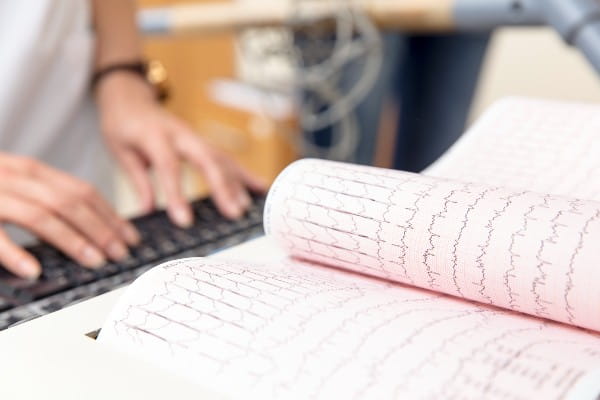Heart disease is a leading cause of death and disability in the U.S. The good news is that with an accurate diagnosis, many heart conditions can be successfully treated. Your doctor may order a stress test or other tests to monitor your heart and see how well it’s working.
"A stress test is one of many diagnostic cardiac tests that allow us to monitor heart function as part of comprehensive heart care," says Anthony Lombardo, M.D., a cardiologist with Riverside Medical Group.
Cardiac function tests identify heart problems
Cardiac function tests, such as a stress test, help your doctor identify and understand heart problems early to provide the best treatment possible. Your doctor may recommend a test if you have:
- Symptoms such as chest pain or shortness of breath
- An irregular heartbeat
- A family history of heart disease
- A high risk of heart disease
- A previous heart procedure
What is a stress test?
A stress test is one of the more well-known tests for cardiac function. During a stress test, you'’ll be hooked up to equipment to monitor your heart and breathing. At the same time, you will perform a physical activity such as walking or running on a treadmill. Imaging and other data captured during the test tells your doctor how well the heart responds under stressful conditions.
Other tests to assess cardiac function and diagnose heart conditions include:
- Cardiac catheterization – measures blood pressure and flow through the heart.
- Computerized tomography – a CT collects images of the heart to detect heart problems.
- Echocardiogram – an ultrasound of the chest to show the heart's structure and function.
- Electrocardiogram or ECG – records electrical signals at rest or during exercise and assesses heart rhythm and structure.
- Holter monitoring – a specific type of ECG completed over 24-72 hours by continuously wearing a monitor during regular activities.
- Magnetic resonance imaging or MRI – collects images of the heart to detect heart problems.
Get to know your test to limit anxiety
It's normal to be anxious about any medical procedure. Unfamiliar tests may increase negative feelings. Get to know your test and any special instructions you'll need to follow to reduce the unknown and help you feel more prepared.
Talk to your doctor about any test you have coming up. Ask questions to understand what to expect, such as:
- What is the purpose of the test?
- What can I expect during the test?
- What information will this test provide, and when will I know the results?
- Is there anything I need to do to prepare for the test?
Keep calm with a few deep breaths
"For tests that measure heart function, stress can influence your results, so it's important to find ways to stay calm in the days leading up to the test," says Dr. Lombardo.
During periods of stress, your body releases hormones that may change the heart's function. In times of danger, like running from a burning building or being chased by a bear, this would be useful. But during everyday life and leading up to a cardiac function test, an increase in the stress response is not a good thing.
An easy way to relax your nervous system is to take a few deep breaths. Slowing your breathing turns on the relaxation response and reduces blood pressure and heart rate.
Take care of your heart, and it will love you back
Even though having a test or procedure can seem scary, finding out how well your heart works helps you know your health risks. Tests provides valuable information to keep you and your heart healthy.
Our expert cardiologists can take the guesswork out of heart health. If you want to discuss your risk factors for heart and vascular disease, talk to your cardiologist or your primary care provider. To see a Riverside primary care provider, call 757-534-5352 to make an appointment, or ask if you can be seen safely through a secure video visit.



